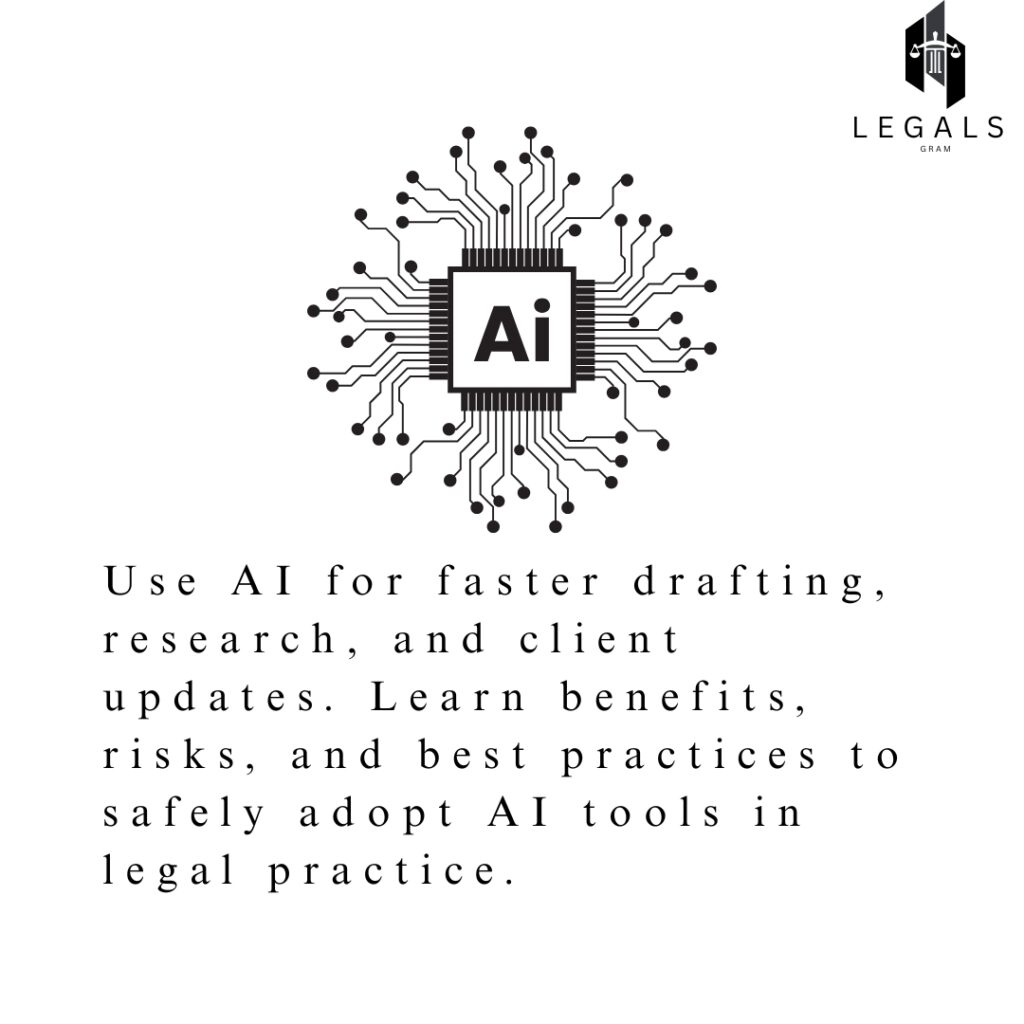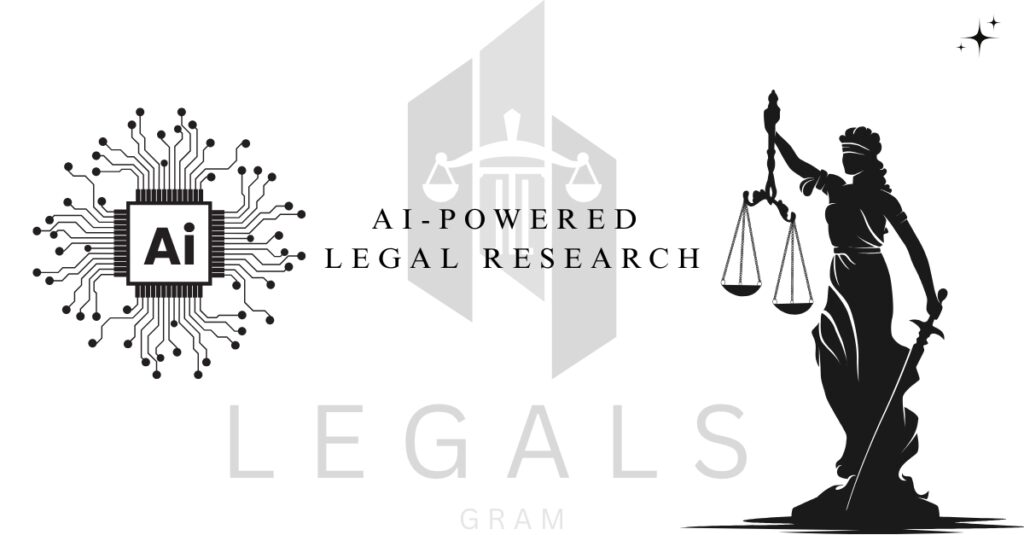Law companies are in a rush to implement generative AI tools. The advent of ChatGPT, Claude and other AI bots will change the way lawyers operate. But can this technology be used in the law?
Which is, depends upon your use of it. Artificial intelligence has the ability to increase efficiency and reduce expenses. It may also pose deadly risks when handled foolishly.
What Is Generative AI in Legal Practice?
Generative AI creates new content from existing data. In law, this means AI can:
- Draft contracts and legal documents
- Summarize case law and statutes
- Generate legal research memos
- Create client communications
- Analyze discovery documents
The most popular are ChatGPT, Claude, LexisNexis+, Westlaw Edge AI. They both provide unique features of law work.
Key Benefits for Law Firms
Faster Document Creation
AI will be able to write simple contracts that might take hours but it will take a few minutes. Basic wills and non-disclosure agreements as well as routine agreements are made easy. That leaves lawyers free to pursue difficult lawyering strategy.
A single practitioner is able to cater more clients. Larger businesses will be able to go through the same basic work at a quicker rate. Having to wait saves time in no time.
Better Legal Research
The machine learning tools search through thousands of cases in a stroke. They identify useful precedence that they would take hours to find manually. Research on the law is better and faster.
The technology is good at identifying patterns. It may identify correlations among cases that people cannot see. This resulted in fortified legal arguments.
Lower Client Costs
Shorter work translates to low bills. Repeatable jobs that consumed billable hours go off in minutes. Clients are able to get quality legal assistance at lower prices.
Small business enterprises are able to access improved legal assistance. Personal consumers are able to avail legal services that were not earlier achievable. The technology makes legal assistance democratic.
Enhanced Client Communication
The AI can assist an attorney towards making sophisticated legal matters understandable. it has the ability to interpret conventional wording to understandable English. The frequency and information in the client updates increase.
It is also aiding the language barriers using the technology. AI is able to translate documentations and messages properly. This increases the number of potential clients of a particular firm.

Significant Risks to Consider
Accuracy Problems
AI gets errors. It may refer to false cases or distort the law. These mistakes may be harmful to cases and to clients.
The technology lacks information about context like humans. It may fail to get key legal implications. Never trust an AI generated content blindly.
Ethical Violations
Careless use of AI may break professional regulations. Lawyers have to be competent and not have conflicts of interest. These responsibilities may be undermined by AI tools.
Another issue is client confidentiality. There are AI systems that contain user data. That may reveal client sensitive data.
Bias in AI Systems
AI works on the basis of already existing data. In case such data is biased, so will be the AI. This may result in unjust law.
Precedents reflect the discrimination in the past. The data could cause issues that AI learns. Attorneys have to be aware of biased AI recommendations.
Over-reliance on Technology
AI is an instrument not a substitute to legal judgment. Lawyers that over-believe the AI lose the critical thinking capacity. They may overlook legal problems.
Human creativity and empathy cannot be substituted by the use of technology. Legal complex issue requires human judgment. AI should not take over but supplement legal thinking.
Best Practices for Safe AI Use
Verify Everything
Never trust the results of AI uncritically. Before giving credit to sources, verify all references and law sources. Check material facts and law on your own.
Develop review systems of AI-created work. Let AI drafts be vetted by experienced lawyers. This avoids awkward errors.
Protect Client Data
Select AI instruments that bear high privacy safeguards. Avoid systems that memorize your data – or what they learn. Agree to read privacy policies.
Think of applying AI tools that can be used in a law firm. They are usually more secure. They know confidentiality requirements in law.
Maintain Human Oversight
AI cannot and should not substitute, it must support legal judgment. Leave major decisions to humans. Don t use AI for complicated legal strategy, but for routine work.
Educate employees about how to use AI. Establish limits on the conditions and ways of propriety usage of AI tools. Misuse can be avoided through regular training.
Stay Updated on Rules
The ethics of AI law are in the formation stage. The bar associations are establishing new guidelines. Be aware of the changes in your jurisdiction.
The errors involving AI might not be covered under professional liability insurance. Review your coverage, and think about extra protection.
The Future of AI in Legal Practice
With time AI will become more precise and helpful. The new tools will provide superior legal-related features. Legal databases integration will be enhanced.
Nevertheless, human lawyers will still be necessary. AI will never be able to substitute a legal judgment, creativity, and relationships with a client. The prospect is ensuring the collaboration between humans and AI.
Effective law firms will think in such a way. They will be able to utilize the AI to reduce waste and enhance court performance. The aim is not faster but better law services.
Making the Right Choice for Your Practice
Think about the particular needs of your firm. Document automation can be beneficial to small firms. Big companies can concentrate on tools for discovery and research. How to Choose the Best AI Legal Research Platform in 2025
Begin with pilot programs. Try AI tools on tasks that are not critical. Wait until using an AI on important stuff until then, just build experience.
Conclusion
Generative AI offers real benefits for legal practice. It can increase efficiency, reduce costs, and improve client service. However, the risks are equally real.
Success requires careful implementation. Verify AI output, protect client data, and maintain human oversight. Use AI as a powerful tool, not a replacement for legal expertise. Unlock Legal Efficiency: AI Drafting & Research Tools
The legal profession is changing. Firms that adapt thoughtfully will thrive. Those that ignore AI or use it carelessly will struggle. The choice is yours to make wisely.



